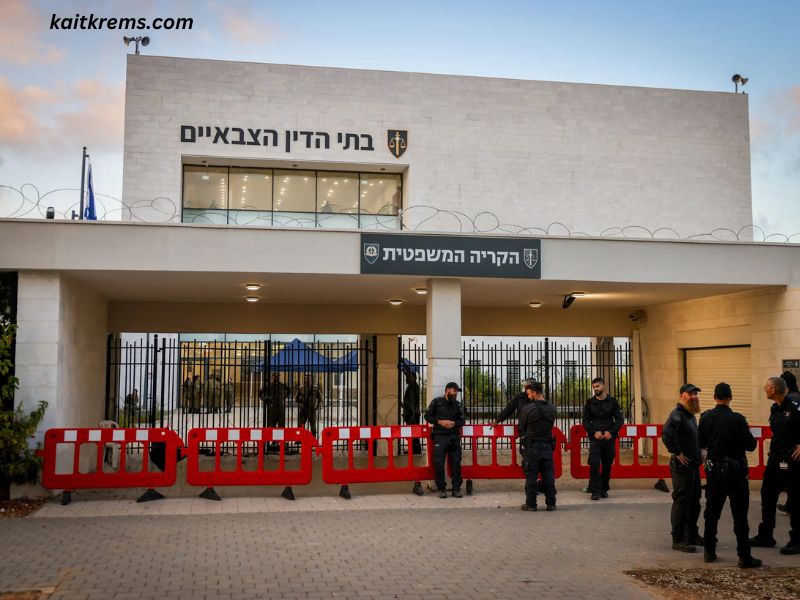Sde Teiman, a facility often in the spotlight, has faced severe allegations of torture, abuse, and unfit conditions. These allegations have drawn widespread attention from human rights organizations, government bodies, and concerned citizens. The claims surrounding this facility are a critical issue that highlights broader systemic challenges. This article delves into the allegations, the reported conditions, and the broader implications on human rights and institutional accountability.
Background of Sde Teiman
Located in Israel, Sde Teiman serves as a residential facility catering to vulnerable populations. Its operations are intended to provide shelter, care, and rehabilitation for those in need. However, its reputation has been tarnished by a slew of allegations pointing to negligence, mistreatment, and unethical practices. These claims have prompted investigations and debates over the state of such institutions.
Allegations of Torture
Physical and Psychological Abuse
One of the most harrowing aspects of the allegations at Sde Teiman involves claims of physical and psychological torture. Former residents and whistleblowers have reported instances of severe beatings, prolonged isolation, and other degrading treatment. Such practices are said to have lasting physical and emotional effects on the victims.
Victims have described harrowing accounts of being subjected to punishments for minor infractions. Reports suggest that some individuals were restrained for extended periods, denied basic needs, or subjected to humiliating verbal abuse. These tactics, they claim, are not only punitive but designed to instill fear and submission.
Unfit Living Conditions
Overcrowding and Hygiene Issues
Another major concern is the unfit living conditions at the facility. Critics have described overcrowded rooms, inadequate bedding, and unhygienic environments. These conditions raise serious questions about the ability of the facility to provide basic care for its residents.
Overcrowding leads to heightened tensions among residents, creating a volatile atmosphere. Combined with insufficient staff training and oversight, this situation often escalates into conflicts and further abuse.
Lack of Adequate Nutrition
Reports also allege that residents of Sde Teiman are subjected to poor nutrition. Meals are reportedly insufficient in quantity and lack essential nutrients, leading to malnourishment among residents. For vulnerable populations relying on institutional care, this neglect has severe implications for their health and well-being.
Systemic Failures
Lack of Oversight
The allegations at Sde Teiman are not isolated incidents but reflect broader systemic failures. Critics argue that a lack of governmental oversight has allowed these practices to persist. Regulatory bodies have reportedly failed to conduct thorough inspections or hold the management accountable for their actions.
Inadequate Staffing and Training
Understaffing is another significant issue. The few staff members employed often lack adequate training, making them ill-equipped to handle the complex needs of residents. This lack of preparation can result in unintentional neglect or even intentional mistreatment, as frustration among staff grows.
Legal and Human Rights Implications
Violations of International Standards
The allegations against Sde Teiman highlight potential violations of international human rights standards, including the UN Convention Against Torture. Torture and inhumane treatment are unequivocally prohibited under international law, and facilities like Sde Teiman are obligated to meet these standards.
Calls for Accountability
Human rights organizations have demanded thorough investigations into the allegations. Many have called for greater transparency in the management of such institutions and stricter enforcement of regulatory measures. Legal action against individuals and entities responsible for the abuse is also being pursued.
The Role of Whistleblowers
Shedding Light on the Truth
Whistleblowers have played a crucial role in bringing the issues at Sde Teiman to light. Former staff members, residents, and their families have courageously shared their experiences despite facing potential backlash. These testimonies have been instrumental in prompting investigations and sparking public outrage.
Protection for Whistleblowers
However, many whistleblowers face threats and intimidation for speaking out. Advocacy groups have called for stronger protections to ensure that individuals can safely expose wrongdoing without fear of retaliation.
Public and Media Response
Growing Outrage
Media coverage of the allegations has fueled public outrage. Citizens and advocacy groups have taken to social media platforms to demand justice and reform. The public discourse has also shed light on similar issues in other institutions, highlighting the need for systemic change.
Calls for Reform
The scandal has led to calls for comprehensive reforms in the management and oversight of residential facilities. Activists are advocating for improved living conditions, better training for staff, and stringent penalties for abuse.
Government Response
Promises of Investigation
In response to the allegations, the government has pledged to investigate the conditions at Sde Teiman. While some officials have expressed concern, others have been criticized for their perceived inaction. Advocacy groups argue that promises of reform must be backed by tangible actions to ensure lasting change.
Legislative Measures
There is a growing demand for legislative measures to prevent future abuses. Proposed reforms include mandatory inspections, stricter penalties for violations, and increased funding for staff training and facility maintenance.
The Broader Impact
Implications for Institutional Care
The allegations at Sde Teiman serve as a grim reminder of the challenges faced by institutional care facilities worldwide. They underscore the importance of prioritizing the dignity, safety, and well-being of vulnerable populations.
A Call to Action
Addressing the issues at Sde Teiman requires a multi-faceted approach involving government action, public advocacy, and institutional reform. By holding those responsible accountable and implementing systemic changes, society can ensure that such abuses are not repeated.
Conclusion
The allegations of torture, abuse, and unfit conditions at Sde Teiman are a stark reminder of the potential for harm when oversight fails. As investigations continue, the focus must remain on securing justice for the victims and ensuring that similar facilities adhere to the highest standards of care and accountability. Public vigilance, media scrutiny, and policy reforms will be essential in bringing about meaningful change.
The situation at Sde Teiman is not merely a local issue but part of a global challenge to protect human rights and dignity in institutional settings. It serves as a call to action for all stakeholders to advocate for a world where such abuses are not tolerated.






